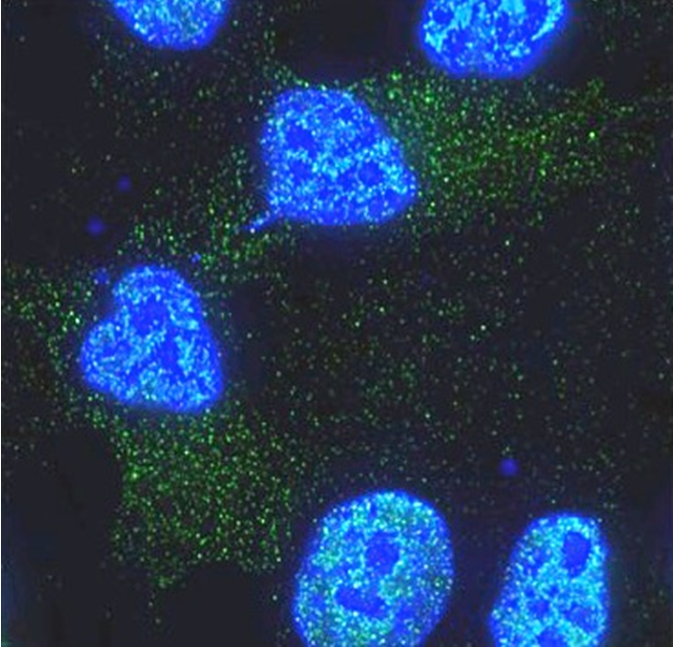Genomic study on renal cell carcinoma reveals potential opportunities for more effective treatments
By Ana María Rodríguez, Ph.D.

It is well understood that renal cell carcinoma is not a single disease. Patients with this type of cancer have different characteristics which may be explained by changes in the way different genes are expressed. These differences in gene expression may lead to specific derailed metabolic pathways which may result in cancer.
As a result, to treat all renal cell carcinomas the same way because they come from the kidney is now recognized likely not to be the most effective way to treat cancer. Understanding which pathways are dysregulated in each patient would more likely lead to more effective treatments.
To help better understand renal cell carcinoma, an international team led by Dr. Chad Creighton associate professor of medicine and member of the Dan L Duncan Comprehensive Cancer Center Division of Biostatistics at Baylor College of Medicine, and Baylor Human Genome Sequencing Center, analyzed close to 900 kidney cancers at the molecular level. They discovered that what have historically been considered three major types of kidney cancer according to their characteristics under the microscope, could be further distinguished into nine major subtypes through molecular analyses. Each subtype was unique in terms of altered molecular pathways and patient survival. This study appears in Cell Reports.
Creighton and colleagues’ findings are important because they help pave the way toward more effective personalized medicine.

“Different types of cancer can show different pathways being dysregulated,” said Creighton. “And for some of the pathways we have therapies we can use to target them.”
In particular, the researchers found that a pathway called immune checkpoint was most active in a subtype of clear cell kidney cancer that is typically very aggressive. The immune checkpoint pathway can potentially be a target for specific therapies.
“Not all patients have this pathway activated but molecular analysis would allow us to identify those patients that represent the best candidates for receiving therapies that target that pathway specifically,” said Creighton.
“If we have this information, then we may have an idea of what would work better for the patient. The molecular information can potentially help guide better decisions for treating each patient.”
For Creighton, this work also highlights a rich data resource that he and others expect will be used extensively by investigators in the field to continue advancing their studies of kidney cancer. “Much is going to be learned about kidney cancer with researchers using these data to answer new questions about the disease,” said Creighton.
Other contributors to these work are Fengju Chen, Yiqun Zhang, Yasin Sxenbabaoglu, Giovanni Ciriello, Lixing Yang, Ed Reznik, Brian Shuch, Goran Micevic, Guillermo De Velasco, Eve Shinbrot, Michael S. Noble, Yiling Lu, Kyle R. Covington, Liu Xi, Jennifer A. Drummond, Donna Muzny, Hyojin Kang, Junehawk Lee, Pheroze Tamboli, Victor Reuter, Carl Simon Shelley, Benny A. Kaipparettu, Donald P. Bottaro, Andrew K. Godwin, Richard A. Gibbs, Gad Getz, Raju Kucherlapati, Peter J. Park, Chris Sander, Elizabeth P. Henske, Jane H. Zhou, David J. Kwiatkowski, Thai H. Ho, Toni K. Choueiri, James J. Hsieh, Rehan Akbani, Gordon B. Mills, A. Ari Hakimi, and David A. Wheeler.
This work was supported by the following grants from the USA National Institutes of Health (NIH): 5U24CA143843, U54HG003273, 2R01CA125123-09, K12CA90628, P30CA168524, F30CA196089, R21CA179720, R21CA173150, U24CA143883, P30CA016672, P50CA101942-01, 2P50CA101942-11A1, 1R21CA191687. Other grant support includes: Cancer Prevention and Research Institute of Texas (CPRIT) grant RP120713, Gerstner Family Career Development Award, the Mary K. Chapman Foundation, and the Michael & Susan Dell Foundation.



